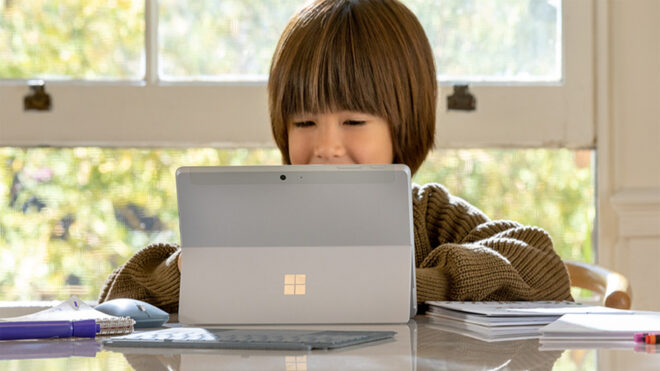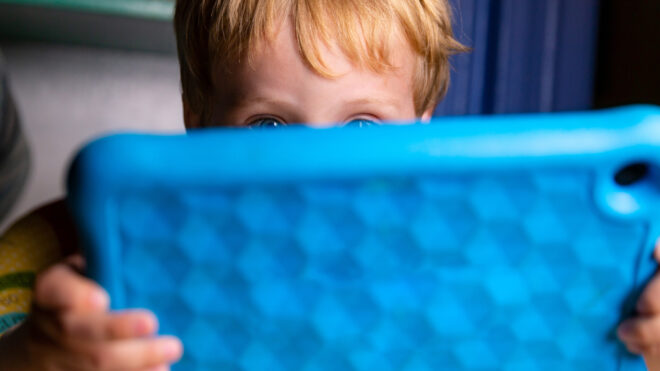No mom or dad wants to think that their child is making serious and potentially embarrassing and harmful mistakes on social media, but ignorance is definitely not bliss. It’s unfortunate and to be expected, but parenting in the age of social media is far different from what it was decades ago. That’s why this app, Gallery Guardian, is a lifesaver. It was created to alert parents when kids take, receive, or save explicit images on their phones. Though some may see it as violation, like reading a teen’s diary, I’d argue that you’re only trying to protect kids.
No parent wants to have to morph into a spy, but — to use a clichéd mom phrase — sometimes “it’s for their own good.” Because, seriously, if kids knew mom and dad were going to be scrolling through their phones before they had a chance to delete certain pics or erase their search history, they’d be more careful, right?
_More from CafeMom: The Last Thing in the World Parents Need Right Now Is To Be Shamed About Screen Time
That’s what Gallery Guardian is banking on. In a BBC interview, Daniel Skowronksi — founder of Yipo Technologies, which made the app — explained how his app works:
“Quite simply, first it will identify if there is a human in the picture,” Skowronksi said in the interview. “The more skin there is, the more the algorithm advances to the point where it will get to a ‘suspicious image detected.'”
Because we’ve seen so many horrifying cases of kids being groomed by Internet predators, it makes sense that parents would want to be made aware of when nude images are coming and going through kids’ phones.
Unfortunately, one area that the app isn’t picking up is Snapchat. So, if a nude image pops up and disappears just as quickly and your kid hasn’t screenshotted and saved it, this app won’t be able to help.
More from CafeMom: 14 Social Media-Inspired Baby Names To Avoid
And, as Skowronksi notes, the algorithm is still being trained, so it may miss something every now and again, as genitalia can be tricky to identify “because of the different varieties in shapes and sizes.”
Still, the whole concept can be a comfort to parents who don’t want to overtly wrestle a phone out of kids’ hands to check every text, app, and social media site their tweens and teen have visited recently. Not that I’m promoting being sneaky, but if something makes teens think twice about making a potentially bad choice, I’m all for it.
Many times, kids are cautioned, “Don’t send anything you wouldn’t feel comfortable showing your grandmother!” or “Don’t post anything you wouldn’t want hanging on a billboard in your town.” While those are certainly reasonable statements to make, you can’t help wonder if kids are actually taking those messages to heart.
Of course there are certain areas where it’s okay to let kids make their own mistakes — failing a test can lead them to see that more studying might have helped, and forgetting their gym clothes might mean they sit out for the day — but cyberspace and pornography aren’t areas where you want to roll the dice. While some parents might not be into the idea of installing this app and invading their son’s or daughter’s privacy, if it can prevent them from becoming a victim of something untoward, wouldn’t you rather know about it sooner rather than later?
Since federal law defines child pornography as any visual depiction of sexually explicit conduct involving a minor, and transferring and viewing that material when the subject is a minor may be considered child pornography, there can be serious legal consequences, according to the American Academy of Psychiatry and the Law.
While several states have enacted legislation to attempt to differentiate between child pornography and sexting by minors, unless you know where your state stands, your child could be unknowingly placing him or herself at risk for some very real trouble.
Also, if you got an alert and found something you’d prefer your child not see, send, or forward, here’s the perfect opportunity to have a meaningful and important conversation. If this kind of “spying” leads to open communication with kids about important issues that have the power to impact their safety, I’m all for it.







